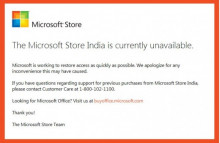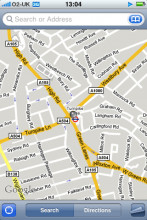Microsoft India backtracks, now says hack may have exposed credit card details
Microsoft has performed an about-turn in India and revealed that a recent hack of its online store may have compromised credit card details belonging to customers in the country.
When the Microsoft India Store was hacked earlier this month, the company emailed its customers to assure them that “databases storing credit card details and payment information were not affected during this compromise”. However, it now appears that this is incorrect.












































































